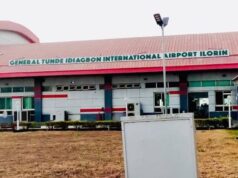
The Federal Government of Nigeria, tired of funding power in the country and still not getting good results, may back down on privatization of the sector soon.
The position of the government, which emanated from a meeting of the National Economic Council (NEC) today, January 23, presided over by Vice President Yemi Osinbajo, was backgrounded on the government’s complain that despite the privatization, it has pumped N1. 7 Trillion into the sector in the last three years.
Briefing newsmen shortly after the meeting at the presidential Villa, Abuja, Governor Nasir Ahmed El-Rufai of Kaduna State said that the way the privatization was done is an issue to many, adding: “what we have agreed on is that there are fundamental problem in the electronic supply industry, and that you cannot privatize an industry and then over three years since privatization, you pump in N1.7 trillion of government into it. That is not privatization.
“The federal government has supported the electricity sector with N1.7 trillion in the last three years and this is not sustainable. So, solutions must be found. Those solutions are not going to be nice. They maybe painful but the only way to solve the structural problems in the industry is to take some very difficult decisions.
“There are many issues including the ones you have observed in Kano DISCO. Our hope is that when we must have presented our report, we would have identified issues and isolated these issues and would present options to the government that would will have costs and benefits, because, we cannot continue to spend N1.7 trillion every try years. The question is if we continue like this are we going to get electricity?
“We can also look at other options and have cost and benefits attached to it for the consideration of the economic council of government.
“So, my appeal is that let’s not be quick to pass judgement. Right now we are listening to all the stakeholders. Of course, there is a lot of blame game. At the end of the day, we must have an honest conversation as Nigerians and know that unless we fix electricity we cannot make progress.
“And this electricity is required not only in the cities but in every home, every rural area. How do we fix the structural problem in the industry so that it doesn’t cost the government this much to cover the whole of the country.
“Today, there are 80 million Nigerians that do not have access to electricity. We cannot continue like this.
“So, we will ask all these questions, look at everything you have observed and even those that you have not observed. But we want to listen to Nigerians and get their own views and incorporate those views in every solution that we proposed.”






